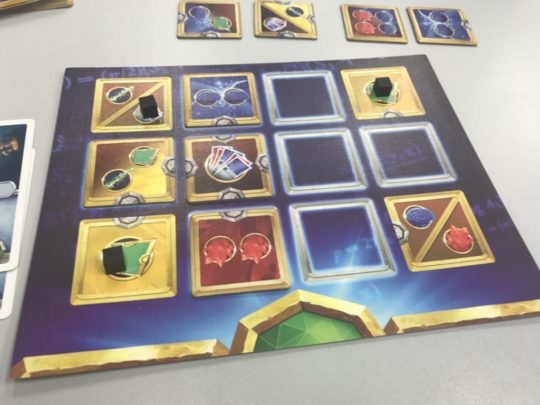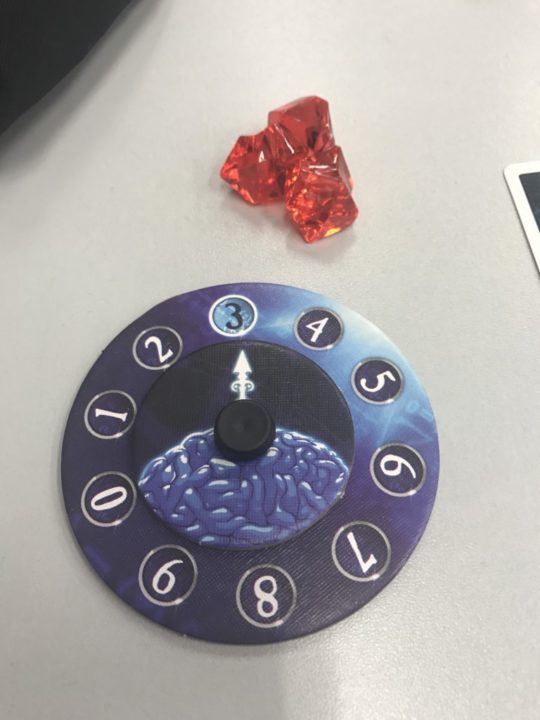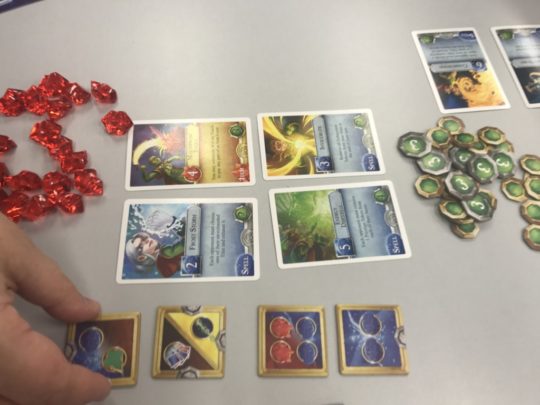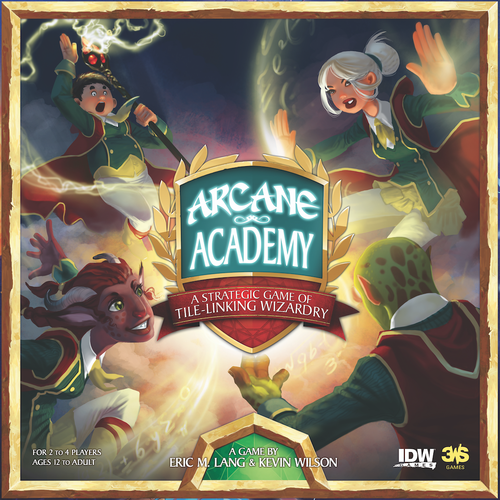“Don’t you worry, Harry. You’ll learn fast enough. Everyone starts at the beginning”
~ Hagrid
Challenge rival students to become the best in class in Arcane Academy, a board game of tile-linking wizardry that pits young spell casters against one another in a duel for honour and prestige. Forge potent magic items and wield wickedly powerful elemental energies to out-think and out-manoeuvre your opponents.
Arcane Academy is based on the critically acclaimed, all-ages comic series Finding Gossamyr, which is set in a fantasy world in which math is the language of magic.
As Wizards in this Academy, you’re trying to complete Assignments with the hope you have the highest score when you put your Pencils Down at the end of the ‘Test’.
Players will take turns either activating a tile on their board or resting… That’s it.
To activate a tile, place a cube on it to exhaust it then take the action on that tile.

The tiles have connectors that connect to adjacent tiles and if a connection is made you can form combos. When you activate a tile, you can also take the action on ALL adjacently connected, exhausted tiles…
There are only a few symbols so they’re easy to remember.
Red and Blue blobs let you gain that many Shards or that much Will. Shards are plastic crystals and Will is on a dial tracker.

One action has you draw a tile from some laid out in the middle of the table. It can go on any empty space on your board or cover any other space, even another tile.
Objectives
As you’re trying to complete objectives (AKA play cards) one action is to do this. You can play a card from your hand, or one from a selection in the middle of the table, by paying the cost.

There are two types of cards, Items and Spells. Some are one-shot, some have end-game scoring, some gather tokens that are worth end-game VPs and some have activated abilities.
One of the actions on a tile is to activate one of these cards.
The final action is a Chaos Magic symbol that lets you pick any of these available actions.
On a turn, instead of taking an action on a tile, a player can rest, removing all exhaustion cubes from their player board.
When a player completes 8 objectives they take the ‘Pencils Down’ card. Everyone takes one more turn including this player.
You get points for the value of the played Objectives plus any point token they accumulated, and most points win.
Arcane Academy Positives
Building combos is fun. You could activate quite a few tiles each turn, maybe 2 or 3, if you build solid connections and play them in the right order.
The ‘do one thing or do nothing’ on your turn mechanism is one I like and probably came over from Arcadia Quest.
The art is cool.
Arcane Academy Negatives
A bit of take that, just a bit, but opponent’s actions can remove tiles from your board and KILL your strategy and it’s quite frustrating.
There’s a bit of ‘Luck’ as the cards in your hand, or the cards/tiles available in the middle of the table change the options you have and some seem better than others.
The dials can move by themselves…
Summary
Not a bad game, but more plays are needed.
Jesta ThaRogue



Leave a Reply